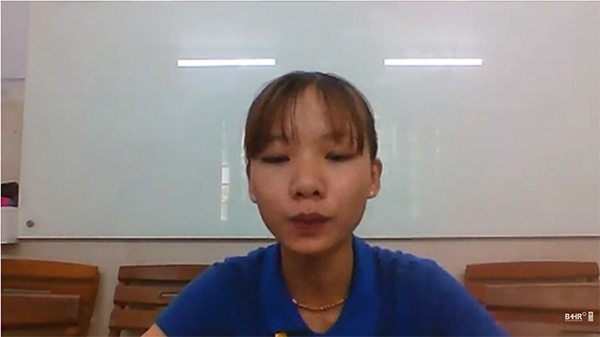
2021 is the International Year for the Elimination of Child Labour. While most people are familiar with the fact that child labour refers to children working under the minimum working age, some might overlook the fact that the definition of child labour includes any children under the age of 18 engaging in hazardous work. That means that children who are above the legal minimum working age but are doing hazardous work, fall within the definition of child labour. According to the latest ILO report, there are around 160 million in child labour, accounting for almost one in ten children worldwide. Of those children, 79 million are doing hazardous work. To protect children and young workers, the ILO and the Alliance 8.7 is urging companies, governments, civil society actors and even individuals to “promote decent work for adults and young people of legal working age” and “protect children in situations of fragility and crisis”.
Heeding this call, The Centre is teaming up with 10 brands and retailers to work towards child labour elimination this year, including strengthening efforts to offer young workers safe and decent working conditions. One of the five core pillars of The Centre and its partners’ approach is to “deliver programmes to support juvenile workers and to create decent work opportunities for young workers.” One of the ways this goal can be realised is by supporting youth development programmes whereby out-of-school, disadvantaged or otherwise marginalised youth are offered work suitable to their age together with skill-building and training opportunities.
19-year-old Phan Thi My Huong (Huong) from Vietnam is a young worker who benefitted from such a youth development programme in a local factory. Her story mirrors the challenges and the opportunities that many vulnerable, out-of-school children face around the world.

Huong sharing her story online at the UN BHR Forum on June 2, 2021
A history of hazardous work and disrupted education
Huong’s family was struggling financially so to reduce the family’s burden, Huong dropped out of school after grade 9 at the age of 15 and started to work. She helped her parents with house chores and also produced incense sticks from her home, which were sold for the domestic market.
The work was very demanding for a child like Huong. She had to squat on the ground from morning to evening. “I had to breath in the incense powder and it was very irritating”, she said. Apart from long working hours and a hazardous working environment, she felt stressed as she needed to start over again if something went wrong. She longed for a job with better and safer working conditions.
Things changed in mid-2019 when Huong’s father told her that his factory introduced a youth development programme, initially implemented by The Centre but then carried on independently by the factory in subsequent years. She was 17 years old at that time and wanted to give it a try.
Youth Development Programme in a nutshell
The Centre’s Youth Development Programme creates decent work opportunities for young workers, combining support to help out-of-work or disadvantaged youth looking for decent work with support to help employers recruit and cultivate a motivated, young workforce.
The programme equips businesses with the skills and knowledge they need to recruit young workers with confidence. The buyer is a strong motivator in this programme. They initiated and sponsored the programme, and also encouraged their suppliers to join hands to support young workers, like Huong, to access decent work and training opportunities.
For the young workers, the programme includes soft skills and developmental training to support young workers allowing them to gain practical skills to reduce common work-related stress, develop insight and ability in making self-assessments and personal action planning for career development, and more.
What impact did the youth development programme have on Huong?
During a webinar at the UNBHR Forum in June 2021, Huong courageously shared her story with the world. She spoke about how reasonable work hours allows her to have more time for her family and to pursue her interests. In the workplace, she has managed to make new friends by joining the programme. Supervisors and adult workers have taught her a lot.
Also, she learnt about soft skills such as personal health protection, financial management, which was great for her wellbeing. “I feel grateful to the factory and the youth development programme for creating an opportunity for me to have a stable job, being trained and being well-oriented,” she said.
The Centre was happy to see her transformation following her participation in the youth development programme. Her story demonstrates that when a company makes an effort to support young workers, the impact will trickle down onto the business level as well, translating into increased worker productivity, and better cohesion between management and workers.
According to impact data from two youth development programmes implemented by The Centre in Vietnam and Indonesia, such programmes bring long-lasting improvements in retention rates. The programme led to a 58% increase of young workers planning to stay for two years or more, while young workers enjoyed more learning opportunities, fair pay, tasks suitable for their age and regulated working hours.
To learn more about how The Centre can support you and your suppliers in terms of child labour prevention and remediation, click here.
By using this website, you agree to our use of cookies. We use cookies to provide you with a great experience and to help our website run effectively.